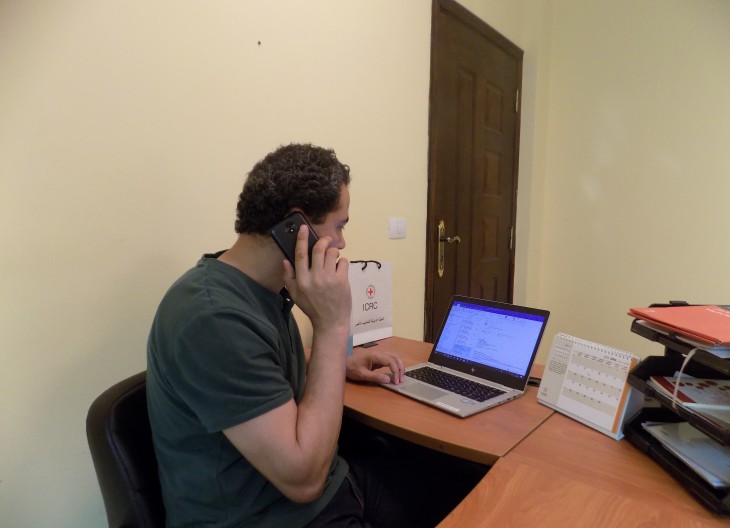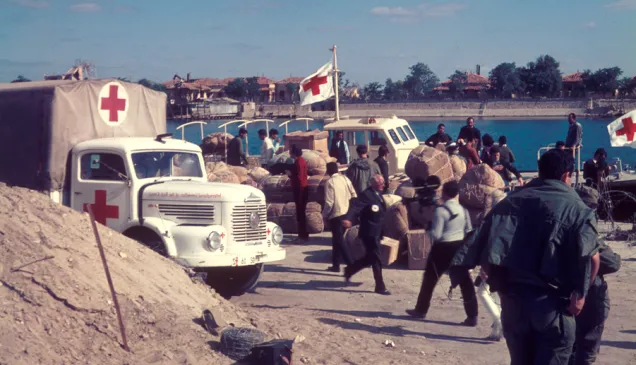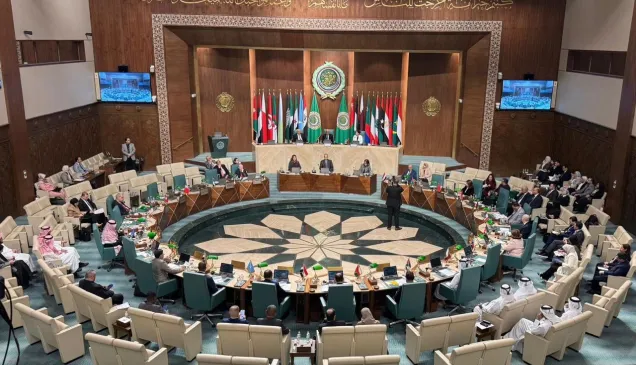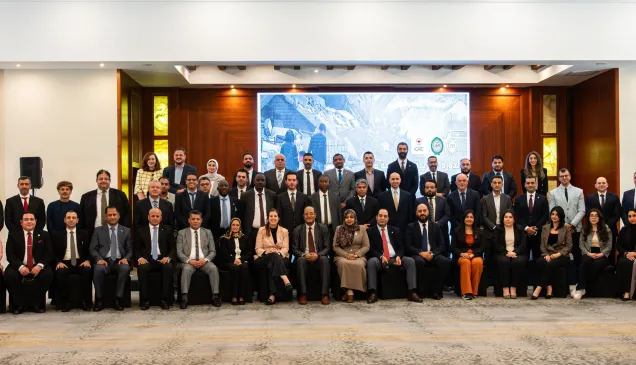COVID-19 in Egypt: Riding out the storm
The current coronavirus disease (COVID-19) pandemic is affecting people and communities around the world, including Egypt. This new reality has had a huge impact on everyone’s life and led to major disruptions to essential services and work.
The ICRC, as an institution, has been working to adapt to a constantly changing reality to ensure the continuity of its humanitarian work, which becomes even more essential during the current crisis, and to respond to the needs of the most vulnerable people affected by armed conflict and other situations of violence.
The ICRC’s Cairo delegation is adapting its existing activities to the new COVID-19 reality, factoring the pandemic into all its programming and ensuring the continuation of its vital activities that serve the most vulnerable populations.
The delegation has remained operational throughout, making sure that adequate precautions for both the delegation and staff are being taken.
The ICRC in Cairo has ensured that it continues providing its Restoring Family Links (RFL) services by phone and e-mail to the best extent possible and is offering to transmit ‘Safe and Well’ messages for the usual beneficiaries of its international phone call service on their behalf, to ensure that they maintain contact with their families abroad.
The delegation is also re-contacting families of missing persons, migrants and Egyptians alike, to ensure that they can reach out to key service-providers and that they are aware of the basic hygiene and prevention measures to better protect themselves and others, and what to do in case they feel unwell as per the guidance of Egypt’s Ministry of Health and the World Health Organization (WHO).

The ICRC in Cairo has ensured that it continues providing its RFL services by phone and e-mail
Through cooperation with another organization, the ICRC continues to support unaccompanied minors and youth from refugee communities through the monthly provision of food and hygiene parcels, ensuring that the distributions are conducted safely to protect both the beneficiaries and staff.
The RFL is a programme through which the ICRC and the national societies around the world work together to locate people, exchange messages, reunite families, and clarify the fate of missing persons. The ICRC is also adapting its existing assistance distributions to vulnerable populations via its partners to ensure that the contents of the assistance are adapted to include additional hygienic items for prevention purposes.
To effectively respond to the evolving situation, the ICRC is in close contact with its partner in the Red Cross and Red Crescent Movement, the Egyptian Red Crescent (ERC), to provide support, advice, and training to staff and volunteers in light of the ERC’s important role in the national response to COVID-19.
The ICRC has also donated essential items to the Egyptian Ambulance Organization (EAO) for the treatment of over 200 patients suffering from trauma and infections, with the oversight and approval of the Ministry of Health. Part of this stock will go to EAO branches and hospitals in North Sinai, and other materials have been delivered to paramedics and hospitals in Cairo.
The ICRC is an impartial, neutral, and independent organization whose mission is to protect the lives and dignity of victims of armed conflict and other situations of violence and to provide them with assistance. The ICRC is present in more than 90 countries around the world, including Egypt, where it has been working for over 100 years.
The ICRC, in cooperation with its Movement partner the ERC, has carried out four assistance distributions to thousands of households in North Sinai, to alleviate the consequences for the families affected by the events in North Sinai. The fourth distribution was completed in March, distributing 469 tons of food aid, 14 tons of hygiene kits, as well as floor mats to 7,000 households in North Sinai.
For further information, please contact:
Nesma Nowar, ICRC Cairo, tel: 0100 0708515, email: nnowar@icrc.org



